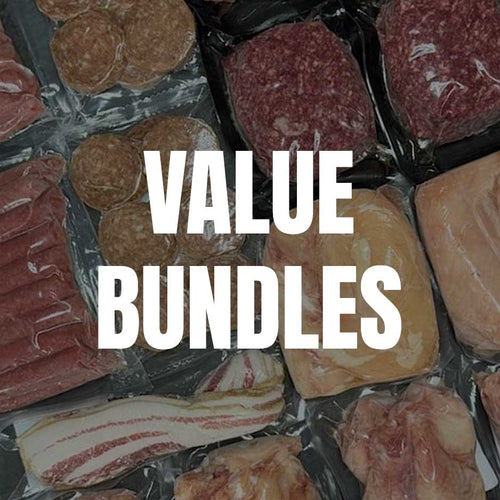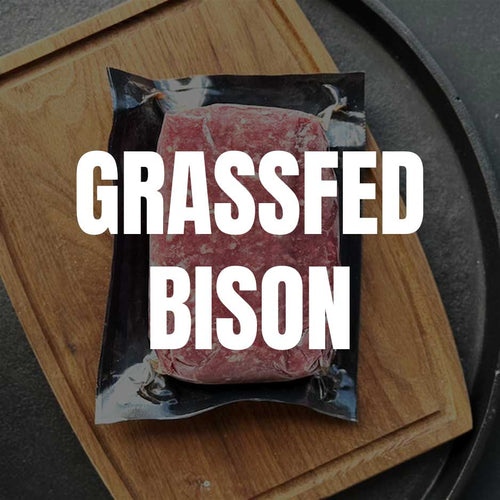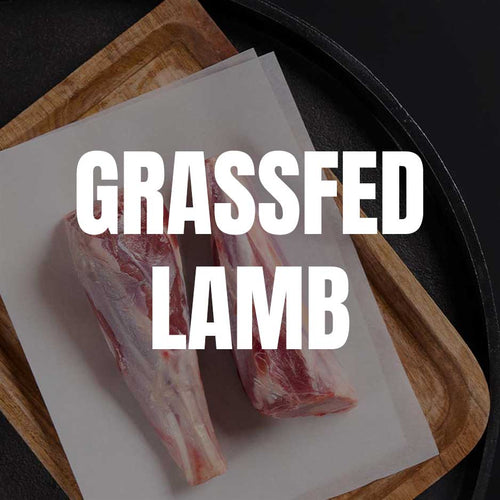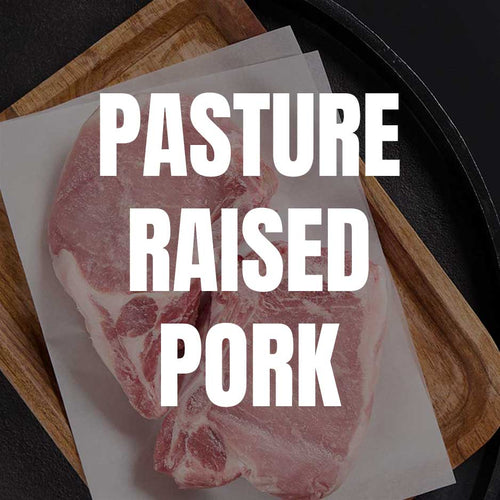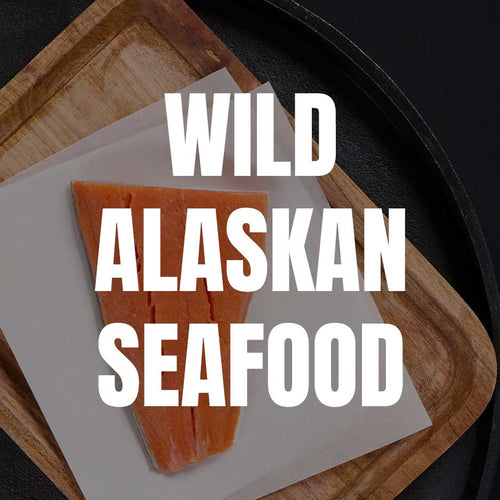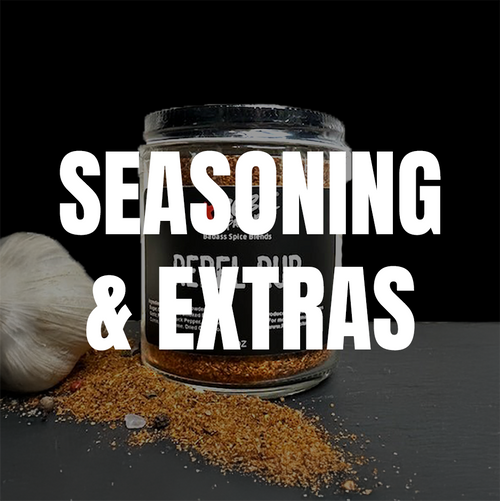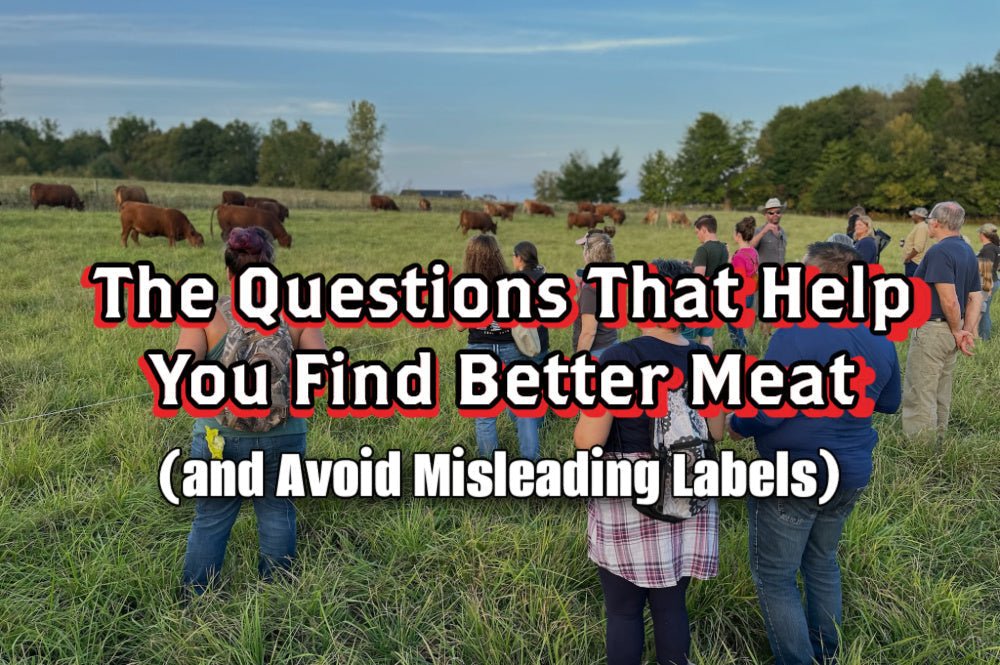
· By Jenni Bajema
The Questions That Help You Find Better Meat (and Avoid Misleading Labels)
Ask Better Questions, Get Better Answers
This is a concept we talk about a lot in our family.
I believe asking good questions is a honed skill - not something everyone is born with. Some people are naturals at it, others have to work harder.
For instance, Justin is an excellent question-asker. He’s very good at reading a situation and getting right to the heart of the issue. It’s something he’s practiced for over 20 years through self-development, negotiating, and mentorship. I think it stems from his service in the Marine Corps, where the “Do as I say-no questions asked” mentality nearly got him killed.
Asking questions is something I’ve had to learn. I tend to listen, reflect, and research on my own before speaking up. But over time, I’ve realized how powerful the right question can be.
And that brings me to your questions. We get a lot of them... no, a $hit-ton of them. And we encourage it. Why? Because we know how important it is to know where your food comes from and who is raising it. This is something you’ll never see from the Bigs.
But here’s the thing... The bigs have become really good at hijacking the Q&A section. They've changed the meaning of words around so much that if you don't ask better questions, you are going to get fake answers.
So let’s break down a few of the common questions ones we get, why they miss the mark, and how you can ask them better.
1) “Is your meat organic?”
Why this falls short:
The word “organic” has been 100% hijacked by corporate food systems. It’s become more about expensive third party certifications that are bought and paid for rather than actual farming practices.
Ask this instead:
“How are your animals raised and what do they eat?”
- Are they raised on pasture or confined?
- What does their daily diet look like?
- Are the grains non-GMO, and are the animals grassfed and grass-finished?
Rebel Pastures, in brief:
We don’t chase the USDA Organic label because it doesn’t guarantee regenerative or humane practices. Instead, we focus on what actually matters: animals raised on pasture, fed non-GMO grains (hogs and chickens), grassfed genetics, and regenerative practices that heal the soil (think rotational grazing).
What to look for:
Farms that are transparent. If a farmer can clearly tell (or show) you how their animals are raised, that’s far more powerful than any label.
2) “Is your meat hormone-free/antibiotic/chemical free?”
Why this falls short:
It’s a marketing gimmick. By law, all chicken and pork in the U.S. are already hormone-free. "Antibiotic-free" just means the antibiotics were withdrawn within a certain time. The label makes you think it means something, but it doesn’t.
Ask this instead:
“What’s the full protocol for raising your animals?”
- Are antibiotics used, and if so, when?
- How is animal health managed proactively?
- Are animals ever given growth promotants or unnecessary drugs?
Rebel Pastures, in brief:
We never use growth hormones or unnecessary antibiotics. Instead, we raise animals in healthy environments where they don’t need constant chemical intervention to survive.
What to look for:
Farms that talk openly about their whole system, not just one marketing buzzword.
3) “Is your meat local?”
Why this falls short:
“Local” is vague. What is this question really trying to accomplish? -To make sure we are supporting small farms that breathe life into local communities. AND to know where our food is coming from.
Ask this instead:
“Where are your animals born, raised, and processed?”
- Are they born, raised and processed in the USA?
- Do you personally know the farmers raising them?
- How do you verify their farming practices?
Rebel Pastures, in brief:
Our animals are born, raised, and processed in the USA and come from trusted regenerative partner farms we know personally. At first we were naive to think everything (Birth to processing) could happen in Michigan (most are)-but there just aren't enough farmers and processors to provide this. For us, “local” means small, transparent and accountable and supports local communities, wherever in the US they may be. We inspect what we expect with boots on the ground.
What to look for:
Farms that can trace every step of the journey from pasture to plate.
4) “Do you use vaccines?”
Why this falls short:
It assumes vaccines are the core problem, when really they’re just a tool. The deeper issue is: why are vaccines needed in the first place?
Ask this instead:
“What animal management practices reduce (or require) vaccines?”
- Are animals crowded in unhealthy conditions that require constant vaccination?
- Is there attention to mineral balance, forage diversity, and stress reduction?
- When vaccines are used, which ones and why?
Rebel Pastures, in brief:
We raise animals in ways that reduce the need for vaccines - on pasture, with space, fresh air, and natural diets. Some species do receive selective vaccines (like layers for Marek’s, or hogs for respiratory viruses), most of these occur because they are given at birth before they reach our farm. We never use blanket protocols just to cover up poor management.
What to look for:
Farms that explain their why - not just whether they do or don’t vaccinate.
Why This Matters
At the end of the day, it’s not about getting the “right” answer. It’s about asking the right questions... the ones that reveal the truth behind how your food is raised.
When you shop from Rebel Pastures, you’re not just buying meat. You’re stepping into a transparent relationship where your questions are welcomed, answered honestly, and backed up with farming practices you can trust.
So keep the questions coming. And keep asking better ones. Because when you do, you’re not just feeding your family - you’re shaping the food system of the future.
Share:
2 comments
-
Thank you for your service and sacrifice to our Republic. I’m thankful to have come across your ad.
I look forward to do business with you and your family. Do you ship to Southgate Mi?
And YES this needs to be in every classroom. Amen 💜💜💜
Theresa McCachren on
-
This is a great article…it should be used in classrooms around the country to teach children how to think critically by asking questions that require/demand more explicit/revealing answers.
Patricia on


